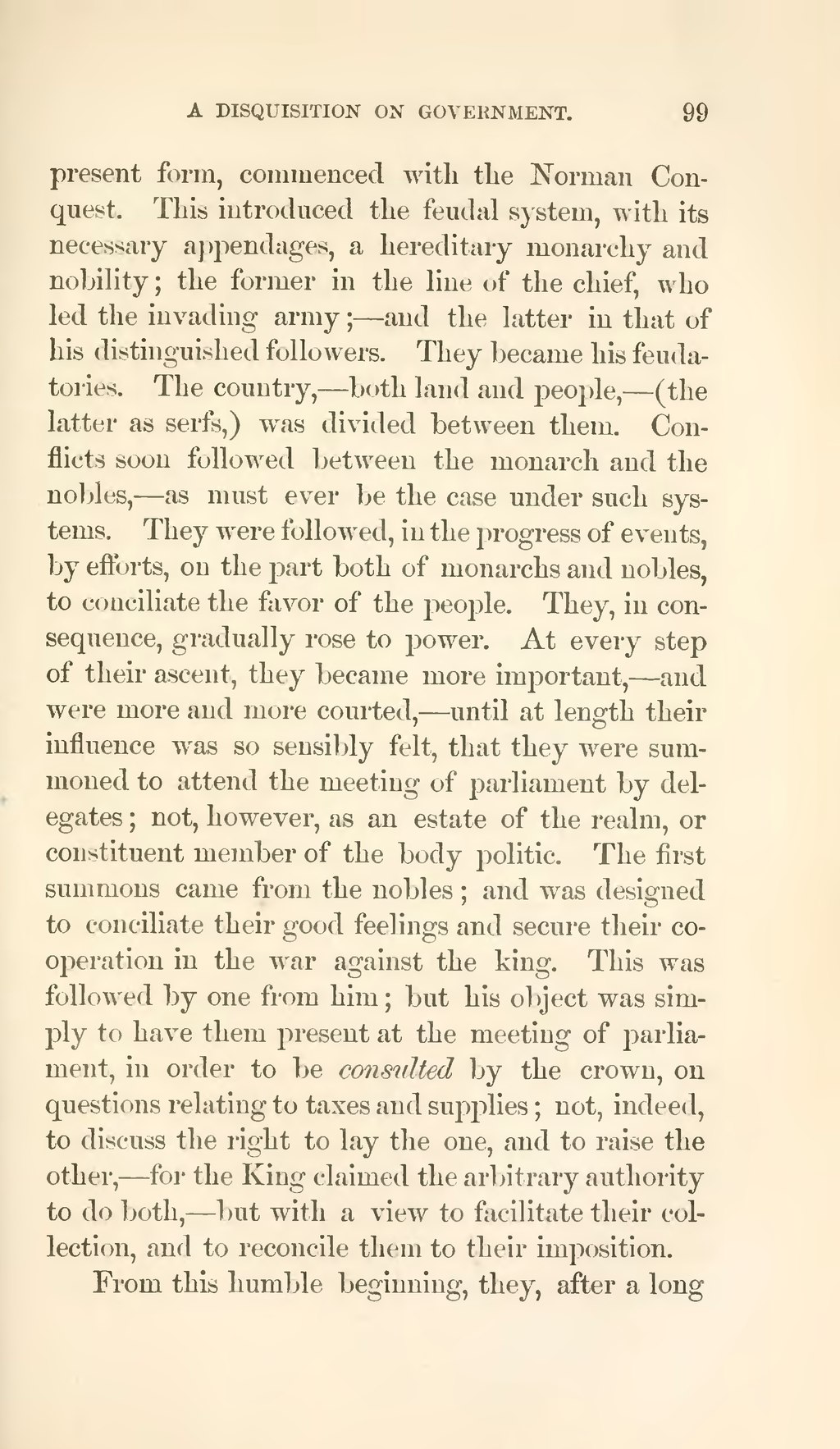present form, commenced with the Norman Conquest. This introduced the feudal system, with its necessary appendages, a hereditary monarchy and nobility; the former in the line of the chief, who led the invading army — and the latter in that of his distinguished followers. They became his feudatories. The country — both land and people (the latter as serfs) — was divided between them. Conflicts soon followed between the monarch and the nobles — as must ever be the case under such systems. They were followed, in the progress of events, by efforts, on the part both of monarchs and nobles, to conciliate the favor of the people. They, in consequence, gradually rose to power. At every step of their ascent, they became more important — and were more and more courted — until at length their influence was so sensibly felt, that they were summoned to attend the meeting of parliament by delegates; not, however, as an estate of the realm, or constituent member of the body politic. The first summons came from the nobles; and was designed to conciliate their good feelings and secure their cooperation in the war against the king. This was followed by one from him; but his object was simply to have them present at the meeting of parliament, in order to be consulted by the crown, on questions relating to taxes and supplies; not, indeed, to discuss the right to lay the one, and to raise the other — for the King claimed the arbitrary authority to do both — but with a view to facilitate their collection, and to reconcile them to their imposition.
From this humble beginning, they, after a long
